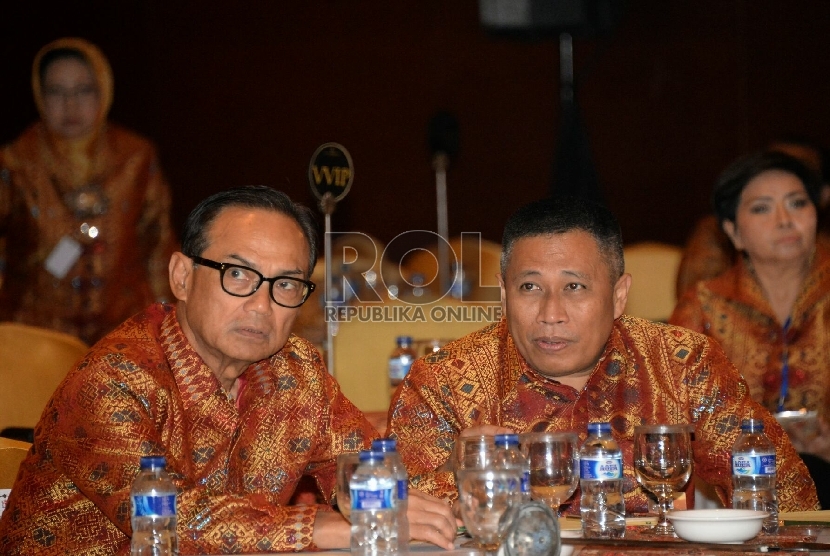REPUBLIKA.CO.ID, JAKARTA -- Synergy among associations plays an important role to counter the slowdown in economic growth, Chairman of the Indonesian Chamber of Commerce and Industry Suryo Bambang Sulisto stated.
"Integration among associations is necessary to fight for their interests that can affect the nation's economy," Sulisto noted here on Wednesday.
According to Sulisto, a business association should help to build good relations between small entrepreneurs and large businesses.
"In Japan, the integration of the interests of small and medium enterprises can be represented by large companies with the assistance of business associations," he pointed out.
Associations should be integrated to define their goals and interests as part of the efforts to create economic prosperity.
He urged the entrepreneurs to realize a better economy that will help to improve the welfare of the people.
"Indonesian businesses should act as the drivers of the nation to create prosperity in trade and industry," he affirmed.
Meanwhile, Vice Chairman of the Indonesian Chamber of Commerce and Industry Noke Kiroyan remarked that an association can improve the performance of its members to realize a conducive climate, create opportunities, and develop their businesses.
Therefore, an association is expected to initiate, facilitate, and increase business transactions.
"If all associations can carry out these functions, business activities and economic growth will increase," he emphasized.
The newly issued economic policy package will not instantly improve the nation's economy, and the country will have to go through several phases to achieve the desired results, Vice President Jusuf Kalla stated earlier.
"Admittedly, it (the economic policy package) will not instantly improve it (the economy)," Kalla said at the Vice Presidential Office here on Tuesday.
The package comprises several steps, including those aimed at enhancing efficiency, he remarked.
Chief of the Presidential Staff Teten Masduki affirmed that the package is part of a series of economic policy packages that the government will issue in response to the market needs.
"The new policy package only involves deregulation of the trade and industrial sectors," he explained.
In the short run, the government is looking forward to strengthening the purchasing power of the public, increasing investment, stabilizing prices, and boosting exports, he noted.
The purchasing power of the people will increase if there is a spurt in domestic economic activities, and more jobs are created, he stated.
It is unlikely that the economic policy package, in the short term, will lead to an immediate strengthening of the rupiah's exchange rate against the dollar, unless there is a huge inflow of foreign capital into the domestic market or a surge in exports, he pointed out.
The government is in the process of improving the investment climate. Besides this, the global demand for commodities is also low, he added.


